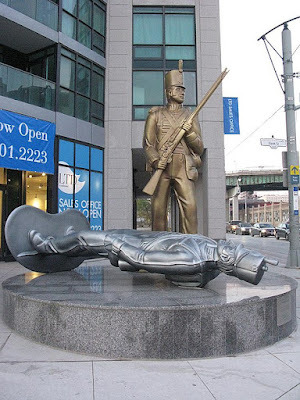Stephen Roney's Blog, page 177
November 21, 2021
The Feast of Christ the King
 Christ Pantocrator, from the interior dome of the Church of the Holy Sepulchre
Christ Pantocrator, from the interior dome of the Church of the Holy Sepulchre
Pilate said to Jesus, “Are you the King of the Jews?”
Jesus answered, “Do you say this on your own or have others told you about me?”
Pilate answered, “I am not a Jew, am I? Your own nation and the chief priests handed you over to me. What have you done?”
Jesus answered, “My kingdom does not belong to this world. If my kingdom did belong to this world, my attendants would be fighting to keep me from being handed over to the Jews. But as it is, my kingdom is not here.”
So Pilate said to him, “Then you are a king?” Jesus answered, “You say I am a king. For this I was born and for this I came into the world, to testify to the truth. Everyone who belongs to the truth listens to my voice.”
John 18: 33-37
Today is the feast of Christ the King, Catholic New Year.
Jesus does not say here that he is or is not a king. “You say I am a king.”
But the last sentence says he is the king of everyone who seeks truth. The essence of being a king is that people do as you say. “Everyone who belongs to the truth listens to my voice.”
Pilate does not get this. He does not get it because he does not belong to the truth; as he reveals in the next verse:
Pilate said to him, “What is truth?”
Pilate is a zombie. To Pilate, the king of truth is not a king; he has no dominion, and no power.
This is definitive, conversely, of who is and is not a true Christian. Christ himself is truth, and king of truth. Accordingly, anyone who seeks and prizes truth is a Christian. Anyone who does not, regardless of whether he mouths the Latin name “Jesus,” in or outside of a church, is not.
And then again, I think whoever seeks and prizes truth, and sits down and carefully reads the gospels, is going to recognize the ring of truth. At the same time, those who do not seek truth are perfectly capable of reading them, and quoting them, and having no idea what it’s all about.
Friend Xerxes just yesterday quoted a Scottish theologian, John Macmurray, as asserting that the “kingdom of heaven” over which Jesus reigns is “friendship.”
“Jesus said contradictory things about it. That the kingdom could appear at any moment. And that the kingdom was already here, and known.
The only human experience true for both statements, Macmurray argued, was friendship.”
Friendship is for from the only human experience that can appear at any moment, yet be already here and known. Think about it for a moment: any possible concept we might have of the future fits, pretty much by definition.
Reducing the Kingdom of Heaven, over which Jesus is king, would seem to require a willful misreading of the gospel.
Friendship does not require God to incarnate and die for us. Friendship is known to all mankind. The oldest known connected narrative, the Epic of Gilgamesh, is the story of a friendship, between Gilgamesh and Enkidu.
Macmurray might respond that the Christian ideal is of friendship among all men.
But try to reconcile that reading with the following passage:
When the Son of Man comes in his glory, and all the angels with him, then he will sit on his glorious throne. Before him will be gathered all the nations, and he will separate people one from another as a shepherd separates the sheep from the goats. And he will place the sheep on his right, but the goats on the left. Then the King will say to those on his right, ‘Come, you who are blessed by my Father, inherit the kingdom prepared for you from the foundation of the world.
This cannot be a universal friendship, then, for it separates mankind into definite camps, and condemns one.
Consider too this passage:
And He said to them, ‘Truly I say to you, there is no one who has left house or wife or brothers or parents or children, for the sake of the kingdom of God, who will not receive many times as much at this time and in the age to come, eternal life.’
This places the kingdom about one’s commitment to family. If the kingdom of God is friendship, this places friendship above love of family. Most people would say family takes priority over friends: blood is thicker than water, and so forth. Is saying friends are more important than family a profound and worthy message?
The Greeks, of course—meaning Jews in Jesus’s time—recognized various forms of love, for which we have only one word. Friendship was philios, family love was storge, sexual love was eros. Divine love, of which Jesus spoke, was agape, sometimes taken as cognate with the English word “charity.” Not philios.
But charity in turn is not the kingdom; it is necessary to enter the kingdom. The kingdom is truth. Or, one might say, the real world.
'Od's Blog: Catholic comments on the passing parade.
November 19, 2021
The Canadian Dictatorship
 Senator Batters
Senator BattersConservative senator Denise Batters called this week for a review of Erin O’Toole’s leadership. Within a few days, Erin O’Toole had ejected her from the Conservative caucus.
This shows how dysfunctional the Canadian system has become. MPs and party members are supposed to choose their leader; the leader is not supposed to choose the MPs and party members. This is an innovation introduced, I believe, by Jean Chretien, based on the right of the leader to sign or refuse to sign the papers for parliamentary candidates to legally stand for office, and it makes Canada almost an elected dictatorship. It ensures that there is no serious discussion of issues in parliament.
We saw similar dictatorial conduct when Justin Trudeau rid himself of Jody Wilson-Raybould and Jane Philpott.
We must end this power.
'Od's Blog: Catholic comments on the passing parade.
November 18, 2021
A List of Extraordinary Popular Delusions
 Sir Francis
Sir FrancisFrancis Bacon wrote:
For everybody … has his own individual den or cavern, which intercepts and corrupts the light of nature; either from his own peculiar and singular disposition, or from his education and intercourse with others, or from his reading, and the authority acquired by those whom he reverences and admires, or from the different impressions produced on the mind, as it happens to be preoccupied and predisposed, or equable and tranquil, and the like: so that the spirit of man (according to its several dispositions) is variable, confused…
We are all, in other words, more or less mad, thanks to our upbringing. More mad if our parents or our culture did not raise us well.
In our current culture, our perceptions are especially distorted. The proof of this is the upward spiral of mental illness, suicides, “accidental” deaths and overdoses. A recent study calculates that “overall, more than 50% of the general population in middle‐ and high‐income countries will suffer from at least one mental disorder at some point in their lives.”
I rue the many years I spent struggling with the delusions imposed by the culture, before I finally had the courage to reject them fully and walk away.
1. The delusion that the existence of a divine intelligence is dubious. There are actually multiple proofs—more proofs than there are of anything else in human experience. Why are we not told this in school?
2. The common delusion that the universe is meaningless. It is suffused with meaning. This follows almost automatically from the existence of God. But it is also true that science would not work otherwise—yet it does. Realizing this could prevent many suicides and overdoses.
3. The assertion that there is no objective right and wrong, but ethics is simply decided by society. Kant proved this wrong, and it is impossible to think rationally in these terms. Make the assertion, and you immediately go on to insisting that those who point out a wrong are wrong—a self-contradiction.
4. The delusion that it is wrong to make moral judgements, to be ”judgmental.” This is the self-contradiction just cited.
5. Intertwined with this, the notion that the majority has the right or the ability to determine truth or morality. That would mean, if we voted that the moon was plaid, it would be. Why does anyone assert such nonsense? A desire to avoid admitting their own sin.
6. The idea that morality consists of respect for authority, going along, and not making waves. A fine idea, if your goal is the full and final rehabilitation of National Socialism. Is it?
7. The delusion that the physical is the real; that only the physical exists. I recall first noticing the words of the Nicene Creed translated as “I believe in all things visible and invisible.” It hit me like a slap upside the head with a wet flounder. Prior to this, I had always heard it as “seen and unseen,” which lacks the clear implication that there is a world beyond the senses. Not only is there, self-evidently; Berkeley nicely demonstrated that the existence of the world of the senses is dubious.
8. The delusion that “science” means “truth.” In fact, science makes no truth claims, as Karl Popper pointed out, and Copernicus understood. “Believe in science” is the opposite of the scientific point of view.
9. The delusion that “science” means “reason”: that the scientific view is the only rational view. In fact, science is the rejection of reason in favour of experience. It has its place, as a check on pure reason, but it must not be allowed to supplant reason.
10. The nonsensical idea that imagined things “do not exist.” This is incoherent: if they did not exist, we could not imagine them. If we imagine them, they exist. They are simply not physical objects.
11. The Freudian idea that emotions or urges grow more powerful and fester if they are not acted upon. If this were true, the cure for alcoholism would be to have another drink.
12. The “Playboy philosophy”: the delusion that sexual gratification can be divorced from either genuine affection or procreation, and enjoyed for itself. If this is true of anyone, they should not be proud of it. It makes them animal, not human.
I submit that most people in North America currently embrace all of these delusions. This makes the average person significantly less sane than many diagnosed as “mentally ill.” A little “mental illness” may be the truth dawning.
I count it my great good fortune that I attended Catholic grade schools. Few can. This planted the seeds of dissent against some of these delusions, which survived many winters to at last be there when I needed them.
It would have been far better had I attended a high school that gave an early education in philosophy and logical fallacies, as some Catholic high schools do. For most of these popular delusions are simple logical fallacies, relatively easy to disprove.
I find it sinister that philosophy is not taught in the schools.
'Od's Blog: Catholic comments on the passing parade.
November 17, 2021
The Good News about the Bad News

I noted yesterday how all the established institutions we used to rely on to keep those in power honest have proven themselves unreliable: the media, the civil service, the church, the academy.
That was a gloomy meditation. Here is a more cheerful thought.
Perhaps as a direct result, we seem to see a rise of new voices.
Joe Rogan, Jordan Peterson, Elon Musk, Donald Trump—all have come out of nowhere to surprising prominence. What do they all have in common?
Sincerity. People can trust them to say what they think. Because we no longer hear this from the old institutions, it has become that much more valued. Listening to them is like balm.
Some might quibble at the inclusion of Musk and Trump. Trump is often accused of lying; and Musk is a businessman, not a communicator. Surely his prominence is due to his business skill?
But what is behind such spectacular business success? Why has Musk repeatedly succeeded in unrelated industries, where others have not dared venture?
It is not because of technical expertise. There is no way Musk has sufficient technical expertise in software, hyperloops, auto manufacture, rocket science, accounting, investment, and banking, to have accomplished his business successes on the basis of technical knowledge.
The secret is that he has been spectacularly successful at convincing investors of all kinds to fund his ideas. And the same is true, to a more modest but highly significant extent, for Trump. They are good at convincing investors. You cannot do that by slick salesmanship; that might work once, but investors will not keep coming back. You do that by keeping promises; by being relentlessly sincere.
And it is powerful when Trump or Musk use this penetrating sincerity in commenting on public affairs. Even if it is only in the odd tweet. Whatever either Musk or Trump tweets, people want to hear. They know they are getting an honest evaluation by a very bright man.
That is the same thing we see in Joe Rogan, or Jordan Peterson.
There are other names that come to mind, if names of lesser fame. Tulsi Gabbard, Jimmy Dore. Why of lesser fame? Not because they are less sincere; but because they are on the left. The left is systematically insincere and delusional now. There is no room on that side of the spectrum for a sincere voice. They will dissociate themselves from you; they will try to silence you. This forced Joe Rogan, Donald Trump, Tim Pool, Dave Rubin, Carl Benjamin, and Jordan Peterson, for example, originally all leftists, to suddenly find themselves on the right instead, at first without their willing it.
Andrew Yang took the other tack: he abandoned his sincerity to stick with the left. Bad move.
I suspect these sincere individuals will become the founders of our new institutions over time.
'Od's Blog: Catholic comments on the passing parade.
November 16, 2021
No Rudder, No Compass, Troubled Seas

WB Yeats, in Nineteen-Nineteen, saw the ordered, mannered Victorian world he knew in collapse, and mankind revealed by the First World War as no more than weasels fighting in a hole.
I get the same sense in 2021. The long moral decline continues, even as we improve our situation materially.
We used to be able to trust the Church as a counterweight to secular excesses, and a moral compass. It seems no longer—Francis acts like a politician with little interest in spiritual matters, presiding over a hierarchy preoccupied with covering up its scandals.
We used to look to the press, the “Fourth Estate,” to rake the muck and hold the high and mighty to account. No longer; the media are now an arm of government. All journalistic ethics have in recent years been abandoned.
We used to assume a neutral and professional civil service. Recent revelations in the US about the “deep state” and the Russia dossier make that now seem naive.
We used to think of the military as a place where ideals of chivalry persisted. No longer: the Canadian military is riddled with scandal, and the American military seems, on the evidence of General Milley, to have gone political.
Artists used to be a prophetic voice, speaking out when the secular powers had gone astray: George Orwell, Sinclair Lewis, William Golding. No longer: all artists can be assumed to be on the partisan left.
Every institution and quarter has been subverted.
I think this comes because we have stopped taking morality seriously. We have called it “conventional morality,” and abandoned it.
Nice chickens. Nice roost.
'Od's Blog: Catholic comments on the passing parade.
November 15, 2021
Epic Fails
 In Canadian federal politics, unfortunately, often the Conservative leaders also lack records of accomplishment.
In Canadian federal politics, unfortunately, often the Conservative leaders also lack records of accomplishment.As the situation in the US gets worse, I ponder: is it just me, or why isn’t it obvious to everyone that left-wing policies make things generally worse, seem even deliberately destructive, while right-wing policies seem to turn out better for nearly everyone?
I think of Margaret Thatcher turning the UK around after years under Labour governments. I think of Regan turning things around after Carter and winning the Cold War. I think of Rudy Giuliani turning NYC around after decades of the entire city being thought of as a no-go zone—and how quickly things are going back to rack under a Democratic administration. I think of how much better things seemed to be in Canada under Harper than under Justin Trudeau, or how quickly things went sour in Ontario when Bob Rae’s NDP got in, after decades of solid government under the PCs.
And now we see things sliding quickly under Biden, after general good times under Trump. Can’t others see this?
It seems to me as well that Republican candidates for office generally have solid records of accomplishment when they run. Democratic candidates have in comparison relatively scanty resumes. Bill Clinton was governor of the relatively small state of Arkansas, and had lost his first bid for re-election. Barack Obama was a first-term senator. Pete Buttigieg won the Iowa primary and briefly looked like the best bet to be the Democratic presidential nominee after only being mayor of South Bend, Indiana—population 100,000. And with no striking accomplishments in that office. Justin Trudeau was a high school drama teacher.
By comparison, Trump, although without political experience, had built a business empire. Mitt Romney had rescued the Salt Lake City Olympics, and managed to get elected governor as a Republican in the nation’s bluest state. Boris Johnson had been a popular mayor of London, famously a leftist electorate. John McCain had been a senator for 22 years, and was a war hero.
The Democrats seem to have a chronic problem here. Each primary season, they seem to lack candidates with actual records of accomplishment.
This may be explained by the simple fact that leftist policies do not work. They go for the fresh face at least in part because any familiar faces are probably discredited by a record of failure.
Why do people persist in voting for parties and policies that do not work?
You can fool some of the people all of the time. Not infrequently, it is enough of them to form an electoral plurality.
The Democrats and the left elsewhere concentrate on looking good, not on doing good. They promise people free stuff.
'Od's Blog: Catholic comments on the passing parade.
November 14, 2021
Puppets
German puppets burned the Jews
Jewish puppets did not choose
“Puppets,” from Leonard Cohen’s posthumous album, Thanks for the Dance. What’s he on about?
The same thing folks are on about when they talk of “NPCs.” Or Ionescu was on about in his play Rhinoceros. Or why zombies are all the rage in popular culture.
The truth is, more and more of us are aware that more and more of us have been turning into automatons. Something is making us lose our free will, our full awareness of our surroundings, and our sense of meaning in our lives. And then we do awful things. Nazism was one dramatic expression of this, but the process seems to continue into the present time.
Cohen takes it a bit further than Ionescu, with his “puppet” image. For this suggests not just an absence of free will and consciousness, but control by another.
And Cohen suggesting this is not control by some oppressive government, dictator, or cabal. The president, too, is a puppet.
Puppet Presidents command
Puppet troops to burn the land
It is not just the Nazis who are puppets, either; the Jews are puppets too. The root is deeper than Nazism itself.
The ultimate puppet master is the Devil. As Bob Dylan said, “You gotta serve somebody.” And this is a real psychological/spiritual phenomenon. Once we embrace any vice, we gradually lose our free will and even our sense of reality. The vice controls us, and our thinking runs in smaller and smaller circuits, with more and more prohibited to us. The sense is captured by the old temperance saying, “first the man takes a drink. Then the drink takes a drink. Then the drink takes the man.”
Cohen seems to suggest an escape from being controlled with the lines
Puppet lovers in their bliss
Turn away from all of this
But if so, he is perfectly wrong. It is actually addiction to sex that has brought us to this state of pinocchiohood. Starting in the Twenties, and mostly accelerating since.
This is the way it always works: the addiction presents itself as an escape from the addiction. One gets drunk to forget that one is an alcoholic. Hence the downward spiral.
Although there is no question he has wrestled with such addictions personally, I suspect Cohen knows this. Otherwise this couplet would be at the end of the poem. Instead, in the poem, the puppethood persists past this. Puppet day is only followed by puppet night.
A bleak poem.
'Od's Blog: Catholic comments on the passing parade.
Still in a Remembrance Day State of Mind
November 13, 2021
War
 Dennis Copeland's monument to the War of 1812.
Dennis Copeland's monument to the War of 1812.
I have recently once again encountered the inedible horse chestnut that “war never solved anything.” I have seen it attributed to Oriana Fallaci. The argument is that the underlying problems will remain and resurface, no matter the outcome.
It sounds good, and virtuous, and consoling, but it is wrong. It is equivalent to saying that policing, or self-defense, never solved anything. That could be true if there were no evil in the world. In most wars, there is a right and a wrong, and if the right does not war, the wrong triumphs.
The Second World War prevented Nazism from taking over Europe, then the world, and killing all the Jews. It may not have wiped out the ideas underlying fascism and Nazism—they seem to stay with us, now masquerading as “postmodernism,” “progressivism” and “antifascism.” But note that they have to masquerade. It certainly wiped out the credibility of fascism or Nazism openly so-called.
The US Civil War ended slavery in the US, and ended the option of states seceding from the union.
The US War of Independence achieved US independence; and perhaps brought the ideals of liberal democracy, of human equality and of fully democratic representative government, to the world stage.
Some wars, it is true, end ambiguously. Perhaps there is an argument here that the war accomplished nothing. Conversely, you might instead argue that the peace accomplished nothing; that it might have been better to keep on fighting to some definite conclusion. The First World War comes to mind.
The First World War is indeed often cited as a pointless war. It seems pointless to us because the casus belli seems unclear, so little ground was physically fought over, and another big war with the same combatants started only a couple of decades later. But it is wrong to say it had no significant results. It ended the Austro-Hungarian Empire, the Ottoman Empire. It established American world dominance. It triggered the Russian Revolution. It ended the era of European dominance, European empires, European cultural confidence, and the days of monarchies. It established the nation-state as the international norm. It changed the world utterly.
And there is probably a good argument that, had the Armistice actually been refused, and the Entente continued to occupy Germany, no second war need have been fought. The “stab in the back” legend could not have arisen.
Americans might be seduced into the notion that war is pointless by their experience since the Second World War. Since then, largely because of the nuclear option, they have been unable to fight any wars to a definite victory. The Korean War, for example, ended about where it started.
On the other hand, it is clearly wrong to say that the UN and South Korea accomplished nothing by fighting that war. Just compare conditions in North Korea to conditions in South Korea today.
Vietnam seems to have been pointless. It gained nothing for the Americans or the South Vietnamese. For the North Vietnamese, it was about independence, but it seems dubious that America or France would still be there had the war not been fought. The economic and political doctrines that came with it probably held Vietnamese development back for a generation or two.
The wars in Iraq may seem pointless to Americans, but only because ultimate victory was thrown away. It recovered the independence of Kuwait and took out the most open aggressor since Hitler, preserving international law and almost certainly preventing future wars.
Afghanistan seems to have been pointless for the Americans, since they leave with the status quo ante. Not for the Taliban, who were fighting to preserve their religious culture against foreign influences. Time will tell whether they succeed.
War is intrinsically awful and a malum in se; that is a separate argument, or rather, probably not even arguable. It is possible for a war to be pointless, but this is the exception, not the rule. More often, to refuse to fight when wrong meets right is simple moral cowardice.
'Od's Blog: Catholic comments on the passing parade.
November 12, 2021
Peace
 Nitobe Japanese Garden, Vancouver
Nitobe Japanese Garden, VancouverIn the wake of Remembrance Day, comrade Xerxes asks, “What is peace?”
He is right to point out that peace does not simply mean the absence of war. But we also need to go on and say what it does mean. To leave the meanings of words vague is an open invitation to the Devil. He will twist the word to his own purposes, to the extent of Orwell’s “war is peace.” This is why Confucius said that the first and most important task of government is to use terms properly.
If one consults the dictionary, the first meaning of peace is indeed not the absence of war. Oxford online gives it as “Freedom from disturbance; tranquility.” Hence “Mental calm, serenity.” I’m pretty confident the primary meaning of the Hebrew “shalom” or the Arabic “salaam” is the same.
As to what peace sounds or smells like, the experts on this are the Chinese. Feng shui is designed to bring such mental calm. The sound that most brings peace is that of gently running water; or the light tinkle of glass on glass, wood on wood, or metal on metal. The sights that most bring peace are those seen in a Chinese or Japanese tea garden: not roses in regimental order, and not random wilderness, but nature coaxed, a use of contrast always slightly off-balance. Always an odd number of elements. Never two things at equal distance, but also never at distances too dissimilar. Never two things the same size, but not vast differences in size.
Peace.
'Od's Blog: Catholic comments on the passing parade.




